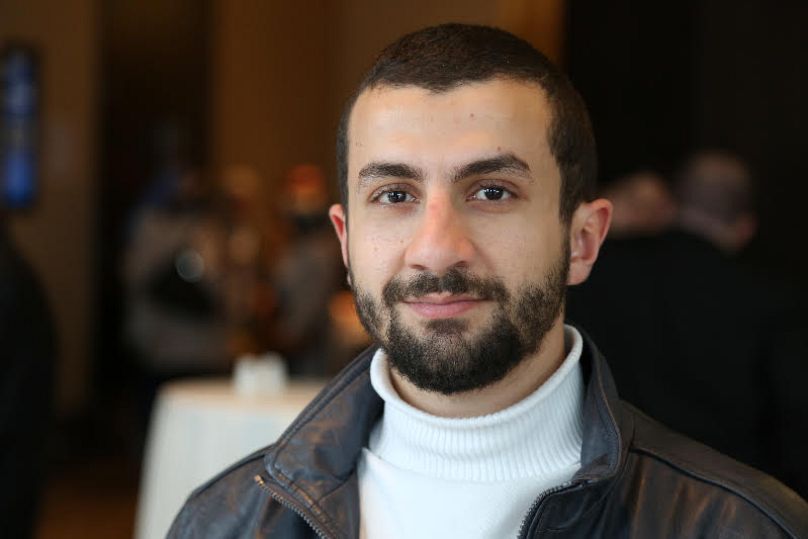A group of high school students in Egypt can’t take their exams because the system introduced by the Education Minister has failed them. [...] The students, aged 15 to 16 years old, decided to take to the streets to peacefully protest the situation, but they were in turn violently arrested.
A group of high school students in Egypt can’t take their exams because the system introduced by the Education Minister has failed them. The brand new, supposedly high tech “tablet” system they are being asked to use doesn’t work because the Education Ministry didn’t pay the internet bill. The students, aged 15 to 16 years old, decided to take to the streets to peacefully protest the situation, but they were in turn violently arrested. This seems like a story from the pages of a George Orwell novel, but it is not. It is from the pages of the Egyptian General-turned-President Abdul Fattah Al-Sisi’s handbook of governing.
Since he came to power in 2013, policy making in Egypt has completely lost its compass. Egypt now suffers from a total distortion in the process, in which policies that should be designed for citizens appear to be designed just for show. Citizens do not benefit from the policies; they are not consulted on their implementation and when they inevitably fail, they do not have the right to criticise those policies. The arrest of high school students who can’t take exams is just the latest example of this.
The whole issue started last September when Minister of Education, Dr. Tareq Shawqi announced a policy that he described as ‘a national dream.’ The policy aim, as outlined by the minister, was to introduce “real education” instead of the “indoctrination system” that he saw was happening in the Egyptian education system. To do so, the new system would depend on “tablets” instead of printed books. In addition, students would take their exams using those tablets instead of the traditional paper-based exams. That way, the minister said, students would not have to memorise answers and would have increased access to learning materials.
The policy however does not solve root problems within the Egyptian education system, such as tackling curriculum reforms, teacher qualifications and class capacity. Even as a merely cosmetic change, the new system totally failed to deliver and repeatedly collapsed during exams. The first trial for this new tablet system was last March. The system disintegrated, leaving students unable take their exams. The failed attempt was met with huge criticism from students and their families. However, the minister justified the mistake as it was only a trial exam, not a formal one.
Last Sunday, the failure repeated again in the first, second and third days of the final exams which pushed the students to protest against this system. The demonstrations which broke out in many governates was faced by police brutality. A picture went viral of a police officer harassing one of the female students. Another video showed the police beating young protestors and arresting them. While it is not yet clear if the police released them or not, the way the security forces dealt with the situation shows exactly how the regime works in Egypt.
And this is not the first time that high school students have taken to the street to protest a bizarre policy decision that directly affects them. In 2015, the previous Minister of education announced a new policy to reform the marking process. The students demonstrated in many governates once again. However, security forces besieged the protesters with armored vehicles and threatened to use tear gas to disperse the demonstration.
The process of policy making in Egypt is that the government designs whatever policy it prefers at that specific time. If the results of the policy are positive, then it takes credits for it. However, when a policy fails to deliver, there is no channel for citizens to show their discontent. If they take to the streets to protest, they are immediately arrested.
Those hundreds of tenth grade students who are 16 years old now, were only 8 years old when the 25 January revolution took place. They simply cannot be a part of some conspiracy aiming to destabilise the regime. By treating every protest like it is a threat to the regime itself, the real fragility of that regime is shown. The policy process is broken and any attempt to improve is squashed so as to maintain the regime’s control. This is not a sustainable situation and the Egyptian people cannot continue in this way. This is not how a democracy acts and to pretend otherwise simply fuels the madness of the Sisi regime.
Mustafa Elnemr is a researcher at the Egyptian Institute for Studies. His research interests include political economy and nonviolent social movements. He has contributed to the Brookings Institute project on US Relations with the Islamic World.
____________
Are you a recognised expert in your field? At Euronews, we believe all views matter. Contact us at view@euronews.com to send pitches or submissions and be part of the conversation.
















